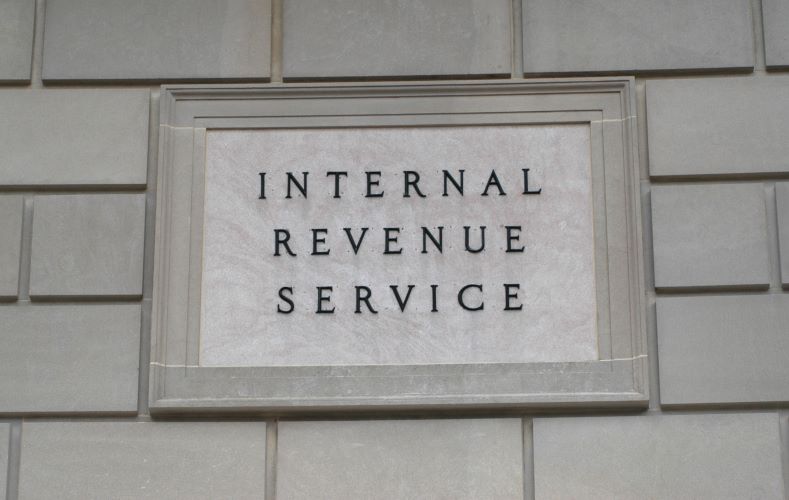As businesses seek to navigate the current reality, it is imperative they understand the relief opportunities provided by the federal government. With the signing of the CARES Act, there are business tax provisions that should be considered by business owners and executives. Here we review the tax relief provisions for businesses.
Payroll Tax Credit
The CARES Act provides for a refundable payroll tax credit for 50% of wages paid by eligible employers to certain employees during the COVID-19 pandemic.
Eligible employers include those where their business has been fully or partially suspended as a result of the government’s social distancing order as it relates to commerce, travel, or group meetings, as well as employers who have experienced more than a 50% reduction in quarterly receipts (measured on a year-over-year basis). Nonprofits can be considered eligible for these credits under this criterion as well.
The tax credit is for wages paid to certain employees. Those employees include all employee wages for employers with an average number of full-time employees under 100 in 2019. For those employers with more than 100 employees in 2019, the credit is available for only those wages paid to employees who are furloughed or who much work reduced hours as a result of business closure or reduced gross receipts.
This credit is for wages paid after March 12, 2020, and before January 1, 2021. Wages are capped at the first $10,000 paid by employer to an eligible employee. If a business is receiving Small Business Interruption Loans under the COVID-19 relief package, they cannot also take this payroll tax credit.
Employer Payroll Taxes Delayed
Under the CARES Act, employers can defer paying the employer portion of payroll taxes (social security taxes) through the end of 2020. The employer instead will need to pay 50% of the payroll taxes deferred by December 31, 2021 and 50% of the taxes by December 31, 2022. This deferral will also be available for those subject to self-employment tax.
Similar to the payroll tax credit, if an employer has had indebtedness forgiven under the Small Business Act this deferral of payroll taxes is not permitted for those employers.
Net Operating Losses (NOLs) Deduction Up to 100%
The CARES Act temporarily removes the taxable income limitation to allow an NOL carryforward to fully offset income. Taxpayers can take an NOL deduction equal to 100% taxable income, rather than the 80% limitation under present law for tax years beginning before 2021. For tax years beginning after 2021, taxpayers can take both a 100% deduction of NOLs arising in tax years prior to 2018, and a deduction limited to 80% of modified taxable income for NOLs arising in tax years after 2017.
Modified NOL Carrybacks
The CARES Act provides that NOLs arising in a tax year beginning after December 31, 2017, and before January 1, 2021, can be carried back to each of the five tax years preceding the tax year of such loss. The provision also temporarily disregards NOL carrybacks for purposes of IRC 965 transition tax and contains special rules for Real Estate Investment Trusts (REITS) and insurance companies.
Modified Loss Limitation
The CARES Act temporarily modifies the loss limitation for noncorporate taxpayers so they can deduct excess business losses arising in 2018, 2019, and 2020. The Act also includes technical corrections to the 2017 Tax Cuts and Jobs Act (TCJA) clarifying that excess business losses do not include any deductions related to performing services as an employee. It also clarifies that, because capital losses cannot offset ordinary income under the NOL rules, capital loss deductions are not taken into account in computing the limitation, and that the amount of capital gain taken into account in calculating the limitation cannot exceed the lesser of capital gain net income from a trade or business or capital gain net income.
Acceleration of the Corporate Minimum Tax Credit (MTC)
Under the CARE Act, corporations for which the alternative minimum tax (AMT) was repealed for tax years after 2017 may now claim outstanding MTCs (subject to limits) for tax years before 2021, at which time any remaining MTC may be claimed as fully refundable. So, the MTC is refundable for any tax year beginning in 2018 or 2019, in an amount equal to 50% (100% for tax years beginning in 2019) of the excess MTC for the tax year, over the amount of the credit allowable for the year against regular tax liability. This means, corporations can claim 100% of AMT credits in 2019.
The Act also provides for an election to take the entire refundable credit amount in 2018. The claim for this credit or refund when the corporation chooses to take the entire refundable credit amount in 2018 will be treated as a tentative carryback refund claim.
An application, as provided by the IRS, must be filed before December 31, 2020, for the tentative refund for any amount. The application must be verified for a tentative carryback adjustment and must set forth the amount of the refundable credit for the tax year, the amount of the refundable credit claimed for any previously filed return for the tax year, and the amount of the refund claimed. Once the application is filed the IRS has 90 days to review the application; determine the overpayment amount; and apply, credit or refund the overpayment.
Business Interest Deduction Increased Temporarily
The TCJA limited the amount of business interest allowed as a deduction to 30% of adjustable taxable income. The CARES Act temporarily increases that limit to 50% for tax years beginning in 2019 and 2020.
Under the CARES Act, the following rules apply to partnerships for this business interest deduction increase:
- This increase in limitation only applies for 2020, not 2019
- 50% of the excess business interest will be treated as paid or accrued by the partner in the partner’s first tax year beginning in 2020 and isn’t subject to any limits in 2020
- 50% of the excess business interest will be subject to the limitations relating to the usual treatment of excess business interest allocated to partners in the same manner as any other excess business interest that is so allocated. In other words, it will remain suspended until the partnership allocates excess taxable income or excess interest income to the partner
Correction on Bonus Depreciation for Qualified Improvement Property
The CARES Act makes a technical correction to the TCJA as it relates to qualified improvement (QI) property. The Act specifically designates QI property as a 15-year property for depreciation purposes making QI property a category eligible for 100% bonus depreciation. The QI property is also specifically assigned a 20-year class life for the Alternative Depreciation System under the CARES Act. This technical correction applies to property placed in service after December 31, 2017.
** With the ever evolving changes of the COVID-19 stimulus opportunities, please refer to our Response to COVID-19 page for the most up to date information. Please contact us if you have specific questions. **
Contact Us
If you have questions about the information outlined above, Selden Fox can help. For additional information please call us at 630.954.1400 or click here to contact us. We look forward to speaking with you soon.
Source: Thomson Reuters Checkpoint Contents




